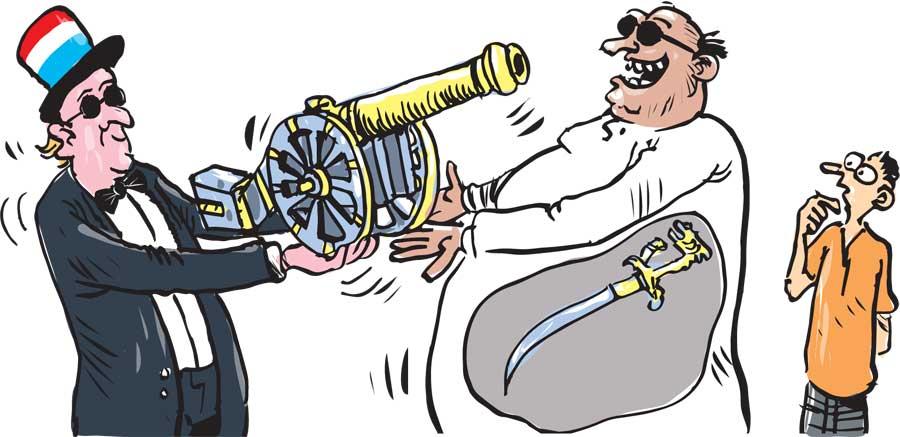Reply To:
Name - Reply Comment

The Netherlands has promised to return some six pieces of artefacts stolen from Sri Lanka during the Dutch colonial period. An agreement was signed between officials of the two countries in Colombo recently to facilitate the transfer of these precious items back to the island nation.
The average Sri Lankan might not be aware of what was taken away from Sri Lanka during Dutch rule, and they may not be really interested in finding out details of those happenings. There are other important matters to be focused on at this point in time; especially the crumbling economy.
But why would the Dutch be interested in Sri Lanka at this juncture? Countries like India, China and the USA are fast securing their interests here in the island.
It’s a well-known fact that most of the superpowers in the world are interested in Sri Lanka’s geographical location in the Indian Ocean. Hence, their moves to place themselves in the island in the guise of promoting business or helping in development work.
Roll the clock back to the period (1658-1796) when the Dutch were in control of this island, and they were doing the same thing. The Dutch chased away the Portuguese and took over the profitable spice trade that was operating in this island. They even controlled the coastal areas of Sri Lanka. The Dutch combined with the Sri Lankan King at that time and together defeated the Portuguese. The Dutch then sent the local King a bill that specified war expenses; something which the King declared he wasn’t in a position to pay.
Don’t we now see similarities when the period of Sri Wickrama Rajasinghe the Second -the last king of the island- is compared to the present times of Sri Lanka, where its elected governments have fallen into debt or trouble after taking massive loans or taking favours from other ambitious nations? China never went to war with Sri Lanka. It didn’t fire a single bullet. It just made Sri Lanka’s greedy lawmakers bite into their bait; the loan trap.
When one analyses the interest shown by countries like China and India in securing their share in the Maritime Route in the Indian Ocean, naturally there would be other nations also wanting to do better; especially when there are nations which were at one time colonial masters of countries like Sri Lanka.
So the Netherlands (which went by the name Dutch 227 years ago) might be wondering what they are doing standing outside the traffic that’s filling into Sri Lanka.
The Chinese and Indian representatives of their own state authorities and present in Sri Lanka have placed themselves in the island’s strategic locations in ventures tied up with the Sri Lankan Government.
Apart from that, Chinese businesses are blooming here and the Government of Sri Lanka has given permission to traders in the island to use Indian currency in business deals done in the Northern Province of Sri Lanka. Maybe the Dutch thought enough is enough, and it was time to move back into the island and establish themselves in some form here. A good start is to strengthen bilateral ties between the two countries.
That’s what the Secretary of State, Culture and Media of The Netherlands Gunay Uslu just did when she met with Sri Lanka’s Cultural and Religious Affairs Minister Vidura Wickramanayake recently and signed a Transfer Acknowledgment Agreement to ensure the return of these artefacts to Sri Lanka. What about items of importance the British removed from Sri Lanka? They, too, can take a cue from The Netherlands.
At least the acknowledgment of having taken things that don’t belong to a person or country must be lauded. Promising to return them is an even more gracious thought. So people do steal and when maturity is experienced with age confessions are made and things are put in order.
In this ambitious hurry that the outside world wants to make ties or connections with Sri Lanka, the manner in which our very own lawmakers stole from this blessed island mustn’t be forgotten. What was stolen from the hard-working citizens of this country must be returned; with ‘interest’.